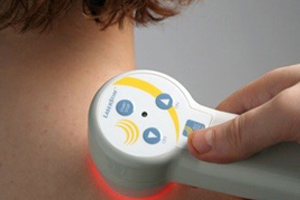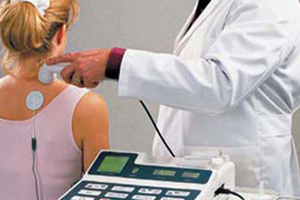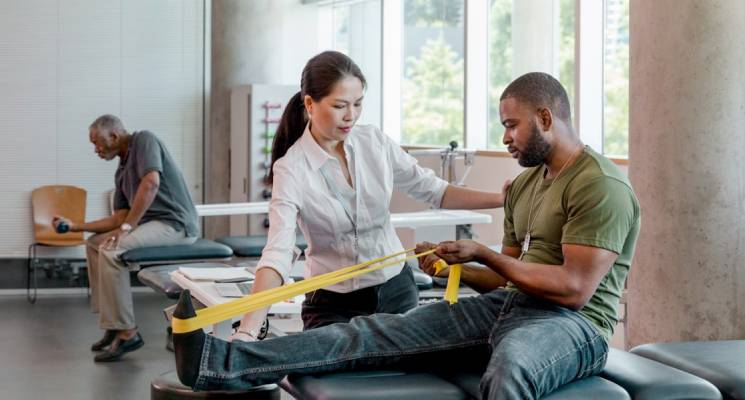
Physiotherapy
Physiotherapy is a medical profession focusing on managing and treating movement disorders and injuries and providing preventative care. At Align, our physical therapist utilizes various techniques to help restore function in all body areas.
These techniques include exercises for functional mobility, weight-bearing exercise for functional independence, joint mobilizations to promote joint health, therapeutic massage for relief from pain and discomfort, and mechanical stimulation to activate muscles that have atrophied or lost tone.
At Align we ensure that you are thoroughly evaluated before you’re given an individualized treatment plan. We go over everything so that you will have a full understanding of your condition and will collaborate with you on formulating realistic treatment goals. We also stay in close contact with your referring physician to more effectively coordinate your care.
Reasons Why You May Need Physiotherapy
- Pain: When your muscles hurt, physical therapists can help. Your doctor may recommend physiotherapy to help you get out of pain or get back to normal.
- Joint Soreness: When your joints are sore, physical therapists can get you to start moving again.
- Arthritis: Arthritis is a bone disease that causes the joints to be painful and swollen. We can soothe your aches and pains.
- Spinal Cord Injury: If spinal cord injury has changed or damaged your body’s movement, physical therapists know the best practices to reduce back pain.
- Muscle spasms: Muscle spasms are caused by injury or disease, such as cerebral palsy, multiple sclerosis, muscular dystrophy, or spinal cord injury. Physiotherapy helps relieve muscle spasms by re-aligning muscles and opening up the pathways for the signals that control motion through the nervous system to pass through freely.
Physiotherapy Treatment
This treatment has been used for thousands of years to relieve pain and increase mobility. It is not just a physical therapist’s responsibility to help you with the Physiotherapy exercises, but you must be committed to doing the exercises and taking the required steps. The treatment plans allow the patient to move freely while managing this injury or illness. The treatment plans are individualized to address what pertains to you as a patient.
- Stretches before and after movement. It is important to reduce the tightness in your muscles and improve the range of motion.
- Strength-building exercise is another way that we can help. It enables patients to perform everyday activities and increase their independence.
- Stair climbing and walking are overlooked exercises, but they are important in strengthening the muscles after injury and maintaining a normal body shape.
- Exercises for moving the joints in the direction and positions needed to perform daily independent living tasks. If done right, the exercises can increase your movement without pain.
- Resistance is another way physiotherapy can come in handy when dealing with an injury and improving the range of motion. It means using weight and resistance devices to do the exercise or activities you need to do.
Benefits Of Physiatrics
Physiatrics can help you back to normal after suffering from an injury if you are experiencing chronic pain. It also helps you maintain your independence and keep from needing aid from another person to do your daily tasks. These are some of the benefits of physiotherapy.
- It gives you confidence
Physiatrics will challenge your independence to see how you can care for yourself and do your daily activities. It allows you to have confidence that you can live independently despite an injury or illness. It may take time for the patient to re-learn some of the everyday activities we usually take for granted. These include walking, dressing, bathing, and eating. - Decrease in pain or discomfort.
Physiotherapy helps relieve pain and discomfort related to injury or illness. The physical therapist’s responsibility is to evaluate what type of pain is present, where it occurs, and how it can be relieved using non-invasive procedures. - Decrease stiffness and improve the flexibility of the joints, muscles, bones, and tendons.
Physiatrics can help decrease stiffness, improve flexibility and joint movement. The patient can practice everyday activities to demonstrate increased flexibility and increased range of motion. - Increased strength and endurance for daily activities of living.
Physiotherapy will increase both the strength and endurance needed for daily living. This benefit is important because many people need to walk, climb stairs, or do other activities that require increased energy and stamina. - Restoring movement in all areas of the body
Physiatrics can help restore movement in the hands, head, lower limbs. It is important because it may take months or years to do so. Doing some of these exercises may get the functionality in these areas sooner rather than later.Physiotherapy is important in today’s health care system because it benefits the health care of our overall population. We provide people with the guidance and treatment they need when they have physical limitations due to an injury or disease.

Laser Therapy

Ultrasound






